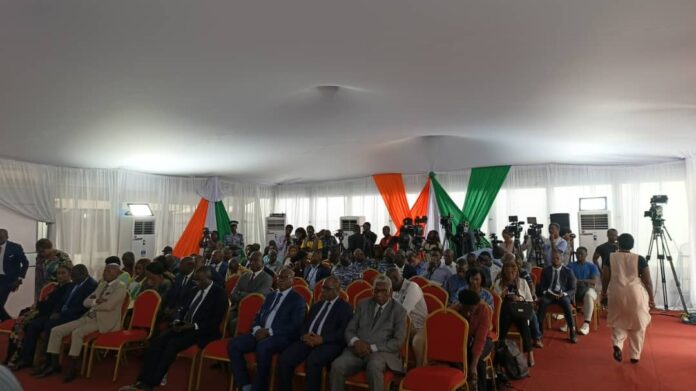
Côte d’Ivoire’s political landscape shifted dramatically on Monday as the Constitutional Council released its final list of approved candidates for the upcoming presidential election, scheduled for October 25, 2025.
The announcement, delivered by Council President Chantal Nanaba Camara two days ahead of the expected release date, has sparked widespread political reaction and intensified scrutiny of the electoral process.
In a move seen as bolstering the incumbent’s position, the Council rejected the candidacies of three major opposition leaders:
Tidjane Thiam, president of the Democratic Party of Côte d’Ivoire (PDCI-RDA), whose legal eligibility has faced prolonged challenges. Laurent Gbagbo, leader of the African Peoples’ Party-Côte d’Ivoire (PPA-CI), was excluded due to unresolved legal issues.
Additionally, Affi N’Guessan, president of the Ivorian Popular Front (FPI), whose disqualification came without prior public contestation.
Their exclusion forms part of a broader disqualification sweep, with 55 candidacies rejected in total, including independent contenders Antoine Assalé Tiemoko and Vincent Toh Bi.
Opposition supporters have condemned the decision, alleging that the electoral process is being twisted to favor the ruling party. The Council has not publicly responded to these accusations.
The finalized list of approved candidates includes, President Alassane Ouattara, seeking re-election as leader of the ruling Rally of Houphouëtists for Democracy and Peace (RHDP). His candidacy was met with celebration from party loyalists. Simone Ehivet, president of the Movement of Capable Generations (MGC). Henriette Lagou, veteran political figure.
Jean Louis Billon, running as a dissident from the PDCI-RDA. Ahoua Don Melo, dissident candidate from the PPA-CI.
With the field now set, attention turns to the campaign period, which observers warn could heighten political tensions in a country still navigating the legacy of past electoral unrest.
Liberia Public Radio correspondent in Abidjan says the October vote is widely viewed as a critical test of Côte d’Ivoire’s democratic resilience and institutional credibility.





















